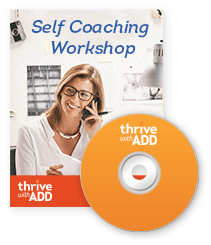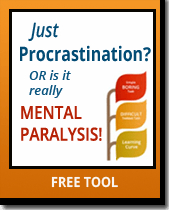 ADHD in Adults Over 50
ADHD in Adults Over 50
Attention-Deficit/Hyperactivity Disorder (ADHD / ADD) used to be viewed as a condition associated with children. Over the last few years, we've become aware that it actually often lasts into adulthood. While it may seem like there are more and more cases of ADHD and ADD being diagnosed today, the likely culprit is not an increase in prevalence, but an increase in awareness.
Many of today’s older adults grew up between the 1950s and the 1970s, when there was not much awareness of ADHD. So many adults who should have been diagnosed – or would have been diagnosed if they were children today – were never diagnosed. They often become aware of the possibility of ADD / ADHD when their children or grandchildren are diagnosed in school. As a result, an increasing number of adults older than age 50 are now seeking treatment today for adult ADHD, notes NPR.
Diagnosis and Symptoms
ADHD generally begins as the brain is developing, with symptoms usually manifesting by age 7. However, these symptoms can persist, lasting throughout childhood and into the rest of that individual’s lifetime.
Adults typically must show five symptoms of inattention, hyperactivity and or impulsivity criteria to be diagnosed with ADHD. A key symptom is the inability to focus attention at will. This leads to inconsistency, being late to meetings or struggling with managing day-to-day tasks. Affected adults may overpay bills, underpay bills, pay bills late or not pay bills at all, says Pharmacy Times, while other adults may experience a hard time staying seated in certain situations. They may fidget, talk excessively or seem like they are not fully listening to loved ones.
Additionally, adults with ADHD are more likely than others to quit or lose a job, or file for bankruptcy, according to industry statistics, making the effective treatment and management of the symptoms shown by adult ADHD patients all the more crucial.
Medication and Treatment for Older Adults with ADD / ADHD
The ideal treatment is a combination of medication and ADHD Coaching. ADHD medications work well for adults and most patients on such drug regiments often report a noticeable reduction in symptoms and an increased focus and drive to their day-to-day activities.
Because older adults were not diagnosed in the past, many learned to work around the problem, developing coping systems to deal with their inability to focus or pay attention. While some senior adults may have sought help for signs of dementia or forgetfulness, their symptoms could actually have been pointing towards ADHD all along. Now that adult ADHD is more widely recognized, there is a growing number of newly diagnosed adults or adults seeking advice for their symptoms.
However, older adults are also often undergoing treatments or medication treatments for other health problems like high blood pressure and heart disease, which can directly conflict with some of the most popular stimulant medications used to manage ADD and ADHD issues, like Adderall or Ritalin. Even if not undergoing treatment, some patients with ADHD may be at a higher risk for stroke, heart attack or increased blood pressure, so any medication dosage should be monitored closely for effects on cardiovascular health.
This also means that ADHD Coaching is often one of the best choices for those with ADD and ADHD who would like to change their habits.
Through coaching, I have helped countless adults with ADD through phone and Skype-based sessions. To learn more or to schedule your complimentary initial consultation, call me at 914-478-0071 or send me an email today.




